
'It's so lonely': Desperate families of Israeli hostages are still in the dark a week on from Hamas rampage
The last glimpse Adina Moshe's family saw of her shows the 72-year-old woman on a motorbike, wedged between two Hamas fighters who are kidnapping her from the Nir Oz kibbutz near Gaza.
1970-01-01 08:00

These Americans are enduring an agonizing wait for news about loved ones in Israel and Gaza
For Israelis and Palestinians alike, the world has been upended in a matter of days. For them, along with anxious loved ones across the United States, a terrifying new reality is starting to set in: A sense of impending doom, loss and uncertainty.
1970-01-01 08:00
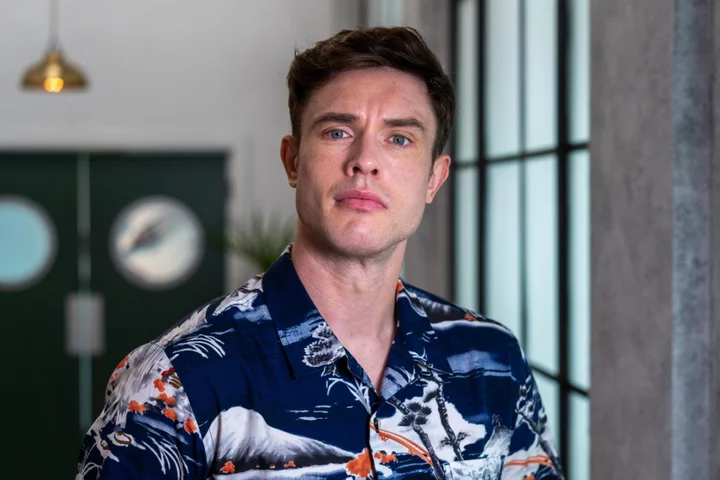
Ed Gamble used to weigh himself every day amid ‘obsessive’ weight loss: ‘I didn’t have a social life’
Comedian Ed Gamble has opened up about battling his “obsessive” tendencies and the “evil” bathroom scales while discussing losing weight. The stand-up comic and panel show regular lost seven stone in weight in his early twenties, and is now releasing a memoir about his relationship with food titled Glutton: The Multi-Course Life of a Very Greedy Boy. In a new interview with The Times, the comic – who hosts comedy food podcast Off Menu with fellow comedian James Acaster – opened up about the ways losing weight changed his life. “After losing weight, I got more obsessed with my image. You do feel different, wondering, ‘Oh, maybe I’m attractive now.’” Gamble, 37, said that he had developed a fixation on fitness after losing weight, and currently took part in the “cult” of CrossFit. However, the Great British Menu judge – who has Type 1 diabetes – had to watch his more obsessive tendencies when he first began to lose weight after he dropped to 12 stone. At this point, Gamble was weighing himself every day. “That’s not a weight I operate well at,” he recalled. “It means I don’t have a social life; I’m always exercising and thinking about what I eat. “At that point, my mum said, ‘You don’t need to keep doing this. Build in having fun again.’” Gamble said that while had weighing scales in his bathroom at the time, he saw them as “evil”. “You’ve put on 2lb. So what? Stop looking. Go with how you feel,” he said. Growing up as a “posh little boy”, Gamble often used food to prove that he was “like the grown-ups”. Speaking to The Independent in August, Ed Gamble recalled first eating poached salmon when he was three or four years old. “I think it would be easy to serve child me in a restaurant,” he said. “I think you’d think I was weird, possibly, because I’d be sat bold upright at the table, sort of like a mini [food critic] Jay Rayner, just demanding everything.” Glutton: The Multi-Course Life of a Very Greedy Boy is released on 26 October. For anyone struggling with the issues raised in this article, eating disorder charity Beat’s helpline is available 365 days a year on 0808 801 0677. NCFED offers information, resources and counselling for those suffering from eating disorders, as well as their support networks. Visit eating-disorders.org.uk or call 0845 838 2040 Read More Should plus-size travellers be asked to take weight-loss drugs for flights? It’s plane crazy Paloma Faith on her heartbreak and being a single mum: ‘Our relationship ended because we had those children – it was worth it’ Weight-loss jabs linked to ‘severe’ stomach problems – study Some people are born with a ‘talent for happiness’ – so what’s their secret? Presenter Louise Minchin: Menopause conversations are no longer taboo – but we need to keep going Israel-Hamas conflict: How to talk to teenagers about distressing news stories
1970-01-01 08:00
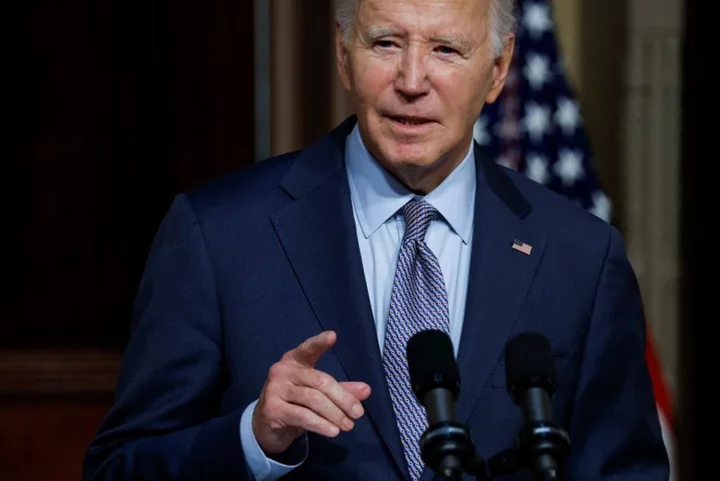
Biden spoke with families of 14 Americans missing after Hamas attacks -White House
WASHINGTON U.S. President Joe Biden has spoken with family members of 14 Americans unaccounted for after attacks by
1970-01-01 08:00
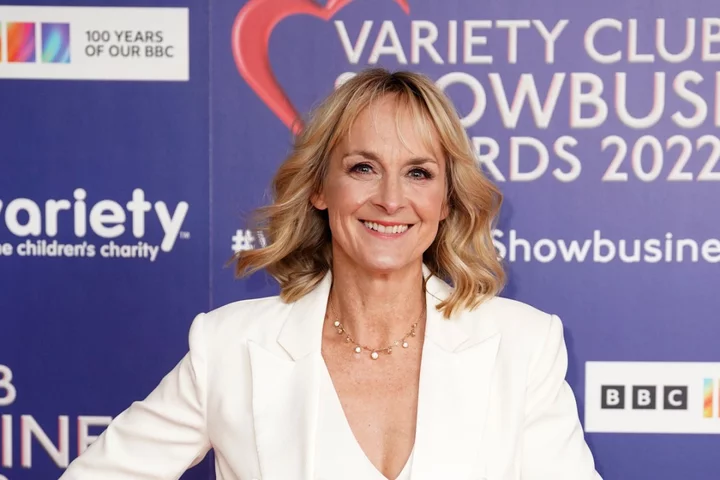
Presenter Louise Minchin: Menopause conversations are no longer taboo – but we need to keep going
Menopause awareness has come a long way in recent years – especially in the workplace. This stands to reason, as nearly 80% of menopause-age women in the UK are in work, according to the Faculty of Occupational Medicine (FOM). In fact, according to ONS figures, menopausal women are the fastest-growing demographic in the workforce. While menopause isn’t challenging for everyone, around three-quarters going through it will experience symptoms – such as brain fog, impaired sleep, hot flushes, anxiety and mood changes – and for one in four women, the impact is severe. Celebrities like Davina McCall have worked hard to tackle taboos and open up conversations around menopause, and a lot has been going on behind the scenes to improve things across healthcare and the workplace. As World Menopause Day 2023 (October 18) approaches, three key figures in the field share their thoughts on the progress so far, and what needs to happen next… Louise Minchin, TV presenter, author and journalist “Progress has definitely been made in respect of people feeling able to speak up. Even if they don’t yet have the answers, people know they can ask the questions – the conversation is no longer taboo, which is brilliant,” says Minchin, who has been at the forefront of menopause conversations in the media. “There’s so much more in the public domain on menopause now, and this enables people to have more of a handle on the topic, and a much better idea where to find help.” In terms of what needs to happen next, she adds: “Employers should be much clearer on how to access training, advice and signposting services that will help their employees work through menopause. Guidelines are all well and good, but [people] need clarity – they need action plans, access to expert trainers and well-informed educators to help them understand and meet their responsibilities and obligations. “It’s important to change the culture, as only when this happens can people open up about what’s happening to them. If you have a supportive and open culture, people feel able to continue in their jobs with the changes that might be needed,” says Minchin – adding that it’s also important to remember “not everyone wants to share or will feel comfortable talking about their situation or their symptoms”, and that needs to be respected too. “We must keep going until we reach the point where we don’t even have to have a conversation about what employers are doing to support colleagues through menopause – because they just are.” Deborah Garlick, CEO of Henpicked: Menopause In The Workplace “In terms of progress, we’ve seen a significant increase in the number of employers taking menopause in the workplace seriously. Seven years ago, no employers had a menopause policy or guidance document. “Today, research suggests around half do, and we have hundreds of employers working towards The Menopause Friendly Accreditation to prove and demonstrate the remarkable, positive impact they’re making for their colleagues,” says Garlick, referencing a scheme set up to show employers ‘have a clear understanding of how menopause can have an effect at work’ and that they ‘care about the wellbeing’ of women at work. “Next we need to see every employer commit to being menopause friendly by putting their menopause policy into action. This is urgent, important and critical for organisational success, particularly with the double threat of our ageing population and the shrinking talent pool,” adds Garlick. “Employers who fail to look after people working through menopause will fall behind.” Rt Hon Caroline Nokes MP, Chair of the Women and Equalities Committee “We’ve made progress on the taboo and stigma, but we need healthcare to up its game. Too many women are still being told they’re too young, it’s depression, you can manage without HRT,” says Nokes, who heads up the cross-party committee set up in 2015 to scrutinise government work and spending around issues impacting women. HRT shortages also need to be tackled, Nokes adds: “You can’t be at your awesome best if you’re anxious about whether your next prescription will be filled – and that is in itself a workplace issue. If we are worried about productivity as a nation, then we need to give menopausal and perimenopausal women the tools to be as productive as possible.” Read More Online apps recommended to manage lower back pain From choppy bobs to fox red, 5 celebrity-approved hair trends for autumn The UK’s first dedicated male breast cancer organisation has launched How Taylor Swift’s style has evolved over the years Model Emily Ratajkowski unveils latest fashion campaign 10 ways to cosy-up your home for an autumnal vibe
1970-01-01 08:00

Online apps recommended to manage lower back pain
Online apps have been recommended to help people with lower back pain in a bid to tackle NHS waiting lists. Seven platforms have been given the green light for people over the age of 16 to manage their condition in early value assessment guidance published by the National Institute for Health and Care Excellence (Nice). According to the NHS Long Term Plan, lower back pain is the biggest cause of disability and is thought to account for about 30% of GP consultations every year. England affected by long-term back pain" data-source="UKHSA"> UK Health Security Agency (UKHSA) figures show there are 9.11 million people living with long-term back pain in England. Nice said it hopes its guidance will work towards reducing inequalities in care for musculoskeletal conditions. It also hopes the move could reduce NHS waiting lists, as well as bringing down the number for people using medication or waiting for GP or physiotherapy appointments. On Thursday, it emerged that a record 7.75 million people in England were waiting to start NHS treatment at the end of August. The digital platforms our committee has recommended could provide the NHS with extra capacity to get those effected off waiting lists, which vary in length across the country, and into treatment Mark Chapman, Nice Mark Chapman, interim director of medical technology and digital evaluation at Nice, said: “More than two million people suffer from low back pain each year and there are considerable pressures on NHS services to provide the treatment and care to those needing support with this debilitating condition. “The digital platforms our committee has recommended could provide the NHS with extra capacity to get those effected off waiting lists, which vary in length across the country, and into treatment. “We believe these technologies have the potential to offer value for money for the taxpayer, while offering people with low back pain quicker access to get the care they need at a time and place of their choosing.” The platforms recommended for NHS use are ACT for PAIN, getUBetter, Hinge Health, Kaia, Pathway through Pain, selfBACK and SupportBack. Some of the apps are designed for people with new back pain, while others are aimed at those with chronic back pain. These apps are yet another example of how technology can be used help patients get the care they need, when they need it Health minister Will Quince The platforms offer access to multi-disciplinary teams, along with guided exercise videos, and reminder functions for patients to do tasks such as filling in questionnaires. Health minister Will Quince added: “These apps are yet another example of how technology can be used help patients get the care they need, when they need it. “They offer a range of services which will allow patients to manage lower back pain from the comfort of their homes by improving access to musculoskeletal services – which will form a key part of our Major Conditions Strategy. “This will help to reduce pressures on the NHS and can help to cut waiting lists – one of the government’s top priorities – and will help people to live happier, healthier lives.” The technologies recommended in the guidance can be used once they have appropriate regulatory approval and meet the standards within NHS England’s Digital Technology Assessment Criteria, Nice said. The watchdog also recommends lower back pain self-management, exercise, manual therapies, psychological therapy, and combined physical and psychological programmes as well as return to work programmes. Denice Logan Rose, executive director of BackCare (National Back Pain Association), said: “Very many people living with non-specific low back pain feel that they have nowhere to turn for help, they are desperate and are at a complete loss about what they can do to help themselves. “Apps form a significant part of the technology-driven world we live in and if they can be used to help people living with back pain to lead more pain-free and active lives, this is a huge step forward.” Read More From choppy bobs to fox red, 5 celebrity-approved hair trends for autumn The UK’s first dedicated male breast cancer organisation has launched – here’s why it matters How Taylor Swift’s style has evolved over the years Model Emily Ratajkowski unveils latest fashion campaign 10 ways to cosy-up your home for an autumnal vibe 5 must-have bag trends for autumn
1970-01-01 08:00
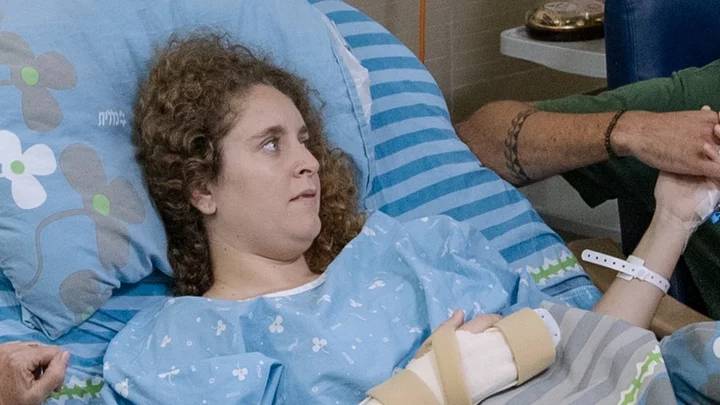
'Dad. They shot me. Help': Surviving the Kfar Aza kibbutz massacre
Neta had not spoken to her father for years, but she knew he was the only person who could save her.
1970-01-01 08:00
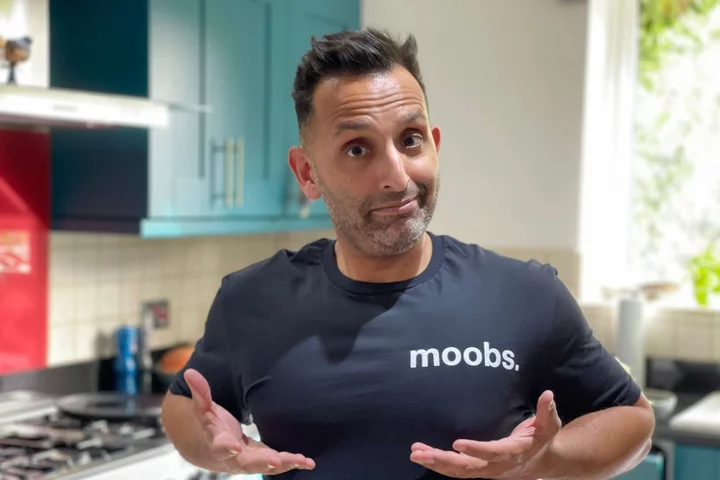
The UK’s first dedicated male breast cancer organisation has launched – here’s why it matters
Lorraine regular Dr Amir Khan and This Morning’s Dr Zoe Williams have joined forces to support the launch of the UK’s first ever dedicated male breast cancer organisation. Called Moobs, the organisation was founded by James Richards, 37, who is currently undergoing treatment for the disease after being diagnosed in February, aged 36. Moobs’ main mission is to raise awareness of breast cancer amongst men, and provide a helpful resource for men who get diagnosed. The organisation also runs a monthly support group via Zoom, to ‘help reduce the isolation’ for men affected. “As a male, I’ve always been aware of the risks of prostate and testicular cancer, but I had no idea men were able to get breast cancer – you just don’t hear of it,” said Richards. “In the days following my diagnosis, I was surprised by the lack of tailored support and information readily available around the disease, and much of my treatment plan was based on what was offered to women. “There are differences, but with so few cases and a lack of funding for male breast cancer, we are in danger of isolating those that need support the most.” Around 55,000 women are diagnosed with breast cancer each year, making it the most common form of cancer in the UK. There are also around 400 new diagnoses a year in men – yet awareness of the condition in males is much lower. It’s believed this is contributing to men being less likely to see their doctor when early signs arise, and a 2019 US study found male breast cancer patients have a 19% higher mortality rate than women. As with women, male breast cancer tends to mostly affect older men, aged 60-70. However, it can potentially occur in younger men too, so being aware of the symptoms is important for everyone. Checking for signs When it comes to checking for warning signs, Dr Amir Khan said it’s “very similar” for both men and women. “I always say to women, be ‘breast aware’ – so that’s knowing what’s normal for you, and then being aware of any changes and getting them checked, and it’s exactly the same for men,” Khan told the PA news agency. “[Often] men don’t know that they’ve got breast tissue – but all men have breast tissue, and that means they’re at risk of getting breast cancer. It is a much lower risk than in women, but the risk is still there. “So what I would say to men is, just as often as you check your balls for any lumps, you should be checking your breasts as well. Do them both – balls and breasts – in the shower, once a month.” Khan explained that the “majority of the breast tissue in men is located around the nipple area -so that is the part you need to be hyper vigilant about” when checking for changes. “But saying that, you should be checking the whole of your chest area, right up to the collarbone and under your arm. “As well as that, nipple changes are really important too – so if one nipple has suddenly changed, if it’s pointing inward instead of outward, or if there’s any skin dimpling, any new unexplained rashes around the breast area, or even unexplained persistent breast pain or chest pain, get that checked out.” See your GP While these things don’t mean you definitely have cancer, it’s always best to get things checked with your GP quickly. “We will be able to either reassure you, or make that onward referral. And it is incredibly rare – we’re talking 400 or so men each year diagnosed with breast cancer,” Khan added. “But it’s always better to be safe than sorry, and the longer you leave it [if it is cancer], sadly, the worse the outcome is likely to be. So as soon as you pick anything up, go and see someone.” For more information, visit moobs.uk Read More How Taylor Swift’s style has evolved over the years Model Emily Ratajkowski unveils latest fashion campaign 10 ways to cosy-up your home for an autumnal vibe 5 must-have bag trends for autumn Dawn O’Porter: ‘I fantasise about the other side of menopause’ Everything you need to know about bedbugs as increase in numbers is predicted
1970-01-01 08:00
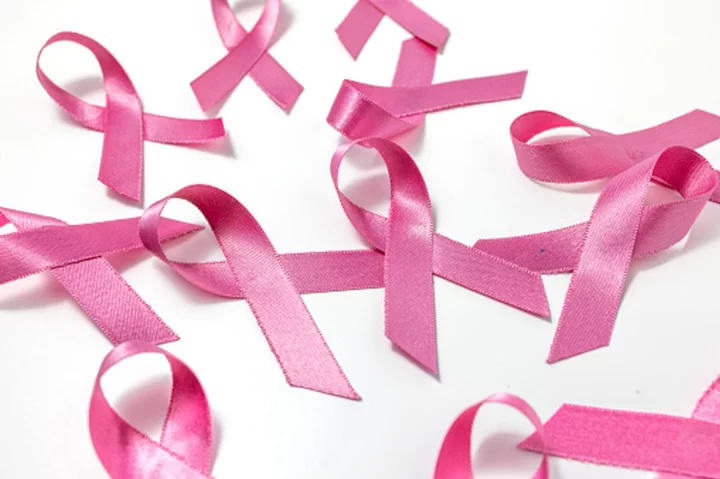
Why October is Breast Cancer Awareness Month - and why we wear pink ribbons
Although people typically associate the month of October with spooky season and the beginning of fall foliage, the month is also known as Breast Cancer Awareness Month. Breast Cancer Awareness Month dates back to 1985, when the American Cancer Society picked one week in October and teamed up with the pharmaceutical division of Imperial Chemical Industries – now part of AstraZeneca, which has worked to develop medicines for breast cancer treatment. The initial goal for the week-long event was to raise awareness towards breast cancer screenings and mammograms. First Lady Betty Ford was diagnosed with breast cancer when her husband, former US president Gerald Ford, was in office. As a breast cancer survivor, she initially helped bring attention to the disease during the week-long event. Over the years, the original week transformed into a month-long event. The goals for Breast Cancer Awareness Month have also evolved over time, such as supporting people diagnosed with breast cancer and metastatic breast cancer, educating people about breast cancer risk factors, stressing the importance of regular screening starting at age 40, and fundraising for breast cancer research. However, the well-known pink ribbon associated with Breast Cancer Awareness Month wasn’t introduced until the 1990s. The inspiration for the ribbon dates all the way back to 1979, when the wife of a hostage who had been taken in Iran tied yellow ribbons around the trees in her front yard as a symbol of her desire to see her husband return home safely. Ribbons were also used years later during the AIDS epidemic, when activists made bright red ribbons to represent those affected by AIDS. The AIDS ribbon was made mainstream after the 1991 Tony Awards, when actor Jeremy Irons was the first to publicly wear the pinned ribbon with a singular loop while hosting the awards show. A woman named Charlotte Haley is attributed with the creation of the Breast Cancer Awareness ribbon, as she was the granddaughter, sister, and mother of women who have all battled breast cancer. Initially, she designed the breast cancer ribbon to be peach-coloured instead of pink. With each ribbon, she passed out a card that read: “The National Cancer Institute annual budget is $1.8 billion, only five per cent goes for cancer prevention. Help us wake up our legislators and America by wearing this ribbon.” Because of her success in passing out thousands of ribbons, many corporations and news outlets reached out to Haley asking to showcase her ribbons and the message she was promoting. She declined each offer as she believed they were “too corporate”, but Self magazine was increasingly persistent. The magazine’s lawyer insisted they change the symbol’s colour, and the pink ribbon was born. In October 1992, the pink ribbon first spread across the nation after Estée Lauder displayed the symbol on its cosmetic counters throughout the country. While the iconic shade of pink is normally associated with Breast Cancer Awareness Month, other colours have been introduced, including hot pink for inflammatory breast cancer; teal and pink for hereditary and gynecologic cancers; pink and blue for male breast cancer; and teal, pink, and green for metastatic breast cancer. According to the American Cancer Society, breast cancer is the second most common cancer in women after skin cancer. There is a 13 per cent chance, or one in eight chance, that a woman will develop breast cancer at some point in her lifetime. Although breast cancer is more typically associated with women, it can also occur in men. In 2021, President Joe Biden designated 17 October to 23 October as Men’s Breast Cancer Awareness Week. While Friday the 13th may be a spooky-themed day, don’t forget that it’s also Metastatic Breast Cancer Awareness Day. Read More Elizabeth Hurley issues reminder to women about getting mammograms as she raises awareness about breast cancer Amy Dowden delights Strictly Come Dancing fans in surprise appearance amid breast cancer treatment Jill Biden urges women to get mammograms or other cancer exams during Breast Cancer Awareness Month Elizabeth Hurley issues reminder to women about getting mammograms Sharon and Ozzy Osbourne ‘plan to be euthanised’ if they lose mental abilities Billy Connolly says reports of his ‘demise have been greatly exaggerated’
1970-01-01 08:00
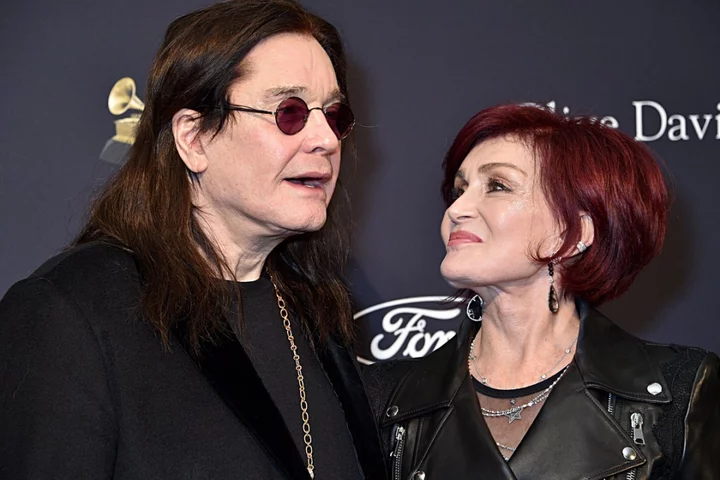
Sharon Osbourne says she and husband Ozzy plan to die by assisted suicide if their mental abilities decline
Sharon Osbourne has reminded her children of her and husband Ozzy Osbourne’s plan to die by assisted suicide, if their physical and mental health takes a severe decline. The former music manager and The Talk panellist, 71, initially discussed her end-of-life plans while promoting her 2007 memoir Survivor: My Story – The Next Chapter. In an interview at the time, Sharon said that she and Ozzy had come to the decision to visit a euthanasia facility in Switzerland, where the practice is legal. “Ozzy and I have absolutely come to the same decision,” she told the Mirror. “We believe 100 per cent in euthanasia so have drawn up plans to go to the assisted suicide flat in Switzerland if we ever have an illness that affects our brains. If Ozzy or I ever got Alzheimer’s, that’s it – we’d be off.” Sharon confirmed that their position on the matter hadn’t changed on the most recent episode of The Osbournes Podcast, hosted alongside Ozzy, 74, daughter Kelly, 38, and son Jack, 37. “Do you remember when Mum and Dad did that interview, talking about how they were gonna go and die through assisted suicide, and we were like ‘What the f*** is this?’” Kelly asked Jack. Jack replied: “They were like, ‘If we get terminally ill, we’re going to go to Switzerland and assisted suicide ourselves.’ Is that still the plan?” “Do you think that we’re gonna suffer?” Sharon asked, before laughing. To Jack’s proposal that “we [are] already all suffering”, she continued: “Yes, we all are, but I don’t want it to actually hurt, as well. “Mental suffering is enough pain without physical. So if you’ve got mental and physical, see ya.” She then clarified that if she had the chance to live longer while struggling with mental and physical issues, she’d decide against it. “What if you survived and you can’t wipe your own ass, you’re p***ing everywhere, s***ing, can’t eat,” Sharon said. “So, what’s different about your life [now]?” Kelly joked. Sharon’s strong view on having an assisted death is largely influenced by watching her father, music manager Don Arden, suffer from Alzheimer’s disease before his death in 2007. Then, in 2014, Ozzy spoke of his desire to die by medically assisted suicide in the case of any “life-threatening condition.” “If I can’t live my life the way I’m living it now – and I don’t mean financially – then that’s it...[Switzerland],” he told the Mirror. “If I can’t get up and go to the bathroom myself and I’ve got tubes up my ass and an enema in my throat, then I’ve said to Sharon, ‘Just turn the machine off.’ If I had a stroke and was paralyzed, I don’t want to be here. I’ve made a will and it’s all going to Sharon if I die before her, so ultimately it will all go to the kids.” If you are experiencing feelings of distress, or are struggling to cope, you can speak to the Samaritans, in confidence, on 116 123 (UK and ROI), email jo@samaritans.org, or visit the Samaritans website to find details of your nearest branch. If you are based in the USA, and you or someone you know needs mental health assistance right now, call the National Suicide Prevention Helpline on 1-800-273-TALK (8255). This is a free, confidential crisis hotline that is available to everyone 24 hours a day, seven days a week. If you are in another country, you can go to www.befrienders.org to find a helpline near you. Read More Inside the secret network of women naming and shaming their bad exes How to really tell if you’re Posh (or not) The rise of ‘Ozempic face’ and why it’s here to stay Billy Connolly says reports of his ‘demise have been greatly exaggerated’ How to get rid of bedbugs: Signs and symptoms amid threat of UK invasion Dawn O’Porter: ‘I fantasise about the other side of menopause’
1970-01-01 08:00
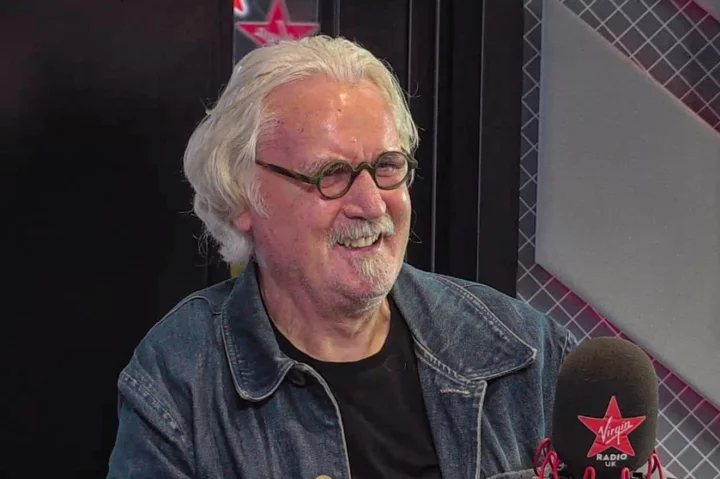
Billy Connolly says reports of his ‘demise have been greatly exaggerated’
Billy Connolly mocks misguided reports of his “demise” in an extract from his new autobiography. The Scottish actor and retired stand-up comedian, nicknamed “The Big Yin”, was diagnosed with Parkinson’s disease in 2013. Parkinson’s is a brain disorder that causes unintended or uncontrollable movements, such as shaking, stiffness, and difficulty with balance and coordination. Often, the disease can become more severe over time. During an interview published in September, it was revealed that Connolly had suffered “a couple of serious falls” and once broke his hip as a result of deteriorating balance. He also expressed having difficulties with walking. Despite these growing physical challenges, the What We Did on Our Holiday star clearly maintains a positive outlook about his health. In his new memoir, Rambling Man: Life on the Road, Connolly clarifies that he doesn’t feel “close to death”. “You see, reports of my recent demise have been greatly exaggerated,” he states in an extract shared with The Telegraph. “There was a week a few years ago where on Monday I got hearing aids, Tuesday I got pills for heartburn, and Wednesday I received news that I had prostate cancer and Parkinson’s disease. But despite all that, I never ever felt close to dying.” Connolly also writes about his feelings of comfort when in a cemetery, and how he reliably makes an effort to attend funerals. He recalls his manager being bewildered by his commitment, telling him: “Billy – even if you haven’t seen someone for 25 years and they die in another country you’ll jump on a plane.” “I just like to see people off,” the comic explains. “It’s important to me. Boys from school. Apprentices from the Clyde. Welders. It’s a bit like a school reunion. Seeing all the people from that place and time – that world I was once part of.” Five years after his diagnosis, Connolly retired from his stand-up career due to the increasing difficulties of the illness, and has previously offered insight into the realities of living with Parkinson’s. Though he said he does not feel close to dying yet, he has spoken with his wife, psychologist Pamela Stephenson Connolly, about the message he’d like on his gravestone when the time comes. He wrote: “I was thinking I’d like: ‘Jesus Christ, is that the time already?’ on mine, but my wife Pamela was shaky about it, so we settled on ‘You’re standing on my balls!’ in tiny wee writing.” Rambling Man: Life on the Road is out now. Read More Billy Connolly says ‘cruel’ Parkinson’s disease has made it difficult to walk Sir Billy Connolly unveils four new drawings for sale Prince William reveals he can’t handle overly spicy food or he’ll ‘start sweating’ Billy Connolly says ‘cruel’ Parkinson’s disease has made it difficult to walk How to get rid of bedbugs: Signs and symptoms amid threat of UK invasion Dawn O’Porter: ‘I fantasise about the other side of menopause’
1970-01-01 08:00
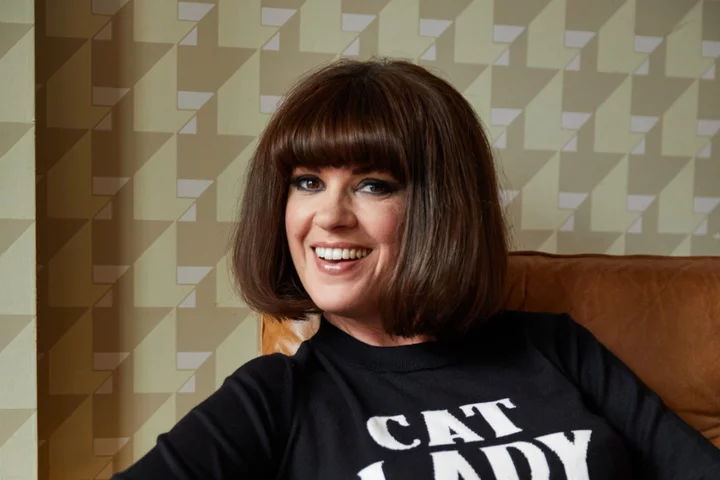
Dawn O’Porter: ‘I fantasise about the other side of menopause’
Knowing her limits is a “revelation”, says Dawn O’Porter, something she discovered in her mid-40s. For the former TV presenter and author – her latest book, Cat Lady, which was released in October last year – it’s something she’s had to learn. “I love drinking booze and eating really indulgent food, but I’m also really into health stuff as well,” she says. “I’m one of those people that’s really good – if I go to a party and it gets to 10:30pm [and] I’m not really feeling the booze, I just stop drinking – but I can stay out until two in the morning. I’m able to turn it off, and I don’t overindulge when I’m done – which I think is a real mid-40s revelation. “I know my limits – I go to everything, I do everything, I just stop when I know I’m done.” For O’Porter, 44, who shares two sons, Art, eight, and Valentine, six, with actor husband Chris O’Dowd, becoming a mother helped shift her perspective. “Since I’ve had kids, I know that I’m going to get woken up at six o’clock in the morning – you’ve got to make better decisions,” she says. “Like everybody, if I don’t do the work, I don’t get paid – and I don’t have the luxury where I can’t get paid. I have to be at my desk at 10 o’clock in the morning, and before I’ve got to my desk I’ve had to feed two humans, get them dressed, get them to school, walk two dogs, pull the house together and do all this stuff. “I know now that when I go on a big night out – which I do all the time, I love it – the next day is a write-off, so I can only do that once a week. It used to be three or four times a week, and it didn’t affect me in the same way. “I definitely feel like it’s a great thing to get to an age when you know what you can and can’t handle.” This “willpower” is something she admits she “didn’t used to have”. But dedicating time to her wellbeing is important, as being in your 40s is a “weird time”, she admits. “You know what’s coming – menopause is coming. What are we in for? So I feel like I’m going to do my very best for myself until that happens. It might be fine, it might not – I don’t know.” O’Porter adds: “It feels nice to go into it in the best health you can be. I’m not an exercise person – I get really into Pilates for two months and never do it again – so I’m consistent about healthy food and skincare and all that kind of stuff.” She’s reminded of a speech Kristin Scott Thomas makes about menopause in the BBC black comedy Fleabag, where she says: “It is horrendous, but then it’s magnificent – something to look forward to.” O’Porter adds: “As someone who has had cramps and really suffered for so much of my life, I fantasise about the other side of menopause – it’s like this giant mountain you have to get over. “I might smooth through it and not even know it’s happening, or I might be one of those people who has a very difficult time – I’ve got no idea. I just want to feel good when I go into it. “I do feel like there’s this freedom on the other side – I’ll be rid of all the things that have weighed me down physically for so many years, and be pain-free and happy.” A healthy diet is particularly important for O’Porter, who can’t eat gluten because it causes her “quite severe pain”. She says: “I have to think about food a lot more than people who can eat gluten – I really read packages and all that stuff. And I’m obsessed with my skin – I really try and eat food that’s really, really good for my skin.” Other aspects of her self-care routine include taking supplements (“If somebody says it stimulates collagen, I’ll literally buy 10 of it!”), taking Epsom salt baths and carving out the time to read before bed. “I think that’s really looking after myself, [so] when I have nights where I’m completely hedonistic and start drinking at 10 o’clock in the morning and don’t get home until four, that’s fine. Because I take care of myself the rest of the time, I think my face survives the hangovers and the dehydration.” After 15 years living in America, in June this year, O’Porter and her family moved from Los Angeles to London – and she couldn’t be happier to be back. “There’s quite a transient vibe to LA, because very few people are born and bred there – there are some, obviously, but most people have come out for some sort of work experience they’re having. They either stay or go, and there’s this constant movement of people. “It was hard to imagine getting older there and settling, there was always this feeling of no matter who we’ve got in our lives, they will come and go – and that unsettled me in the last few years.” Back in London, “Everything I do is an investment in the future of living here, which feels really lovely,” O’Porter enthuses. “Every relationship I make – all my girlfriends or my mum friends – everybody is here for keeps.” She’s particularly looking forward to spending Christmas on this side of the world. “I started planning Christmas months ago – where we’re going to be, what we’re going to do, because ultimately, I love hosting it. I love doing the whole thing myself.” She’s hoping to host this year, and foresees absolutely no festive pressures, saying: “It doesn’t stress me out at all, I’d say it’s me at my absolute best. “I cook like Christmas Day on every Sunday for lots of people, I love it so much. I get really into it and I start drinking about 10 in the morning – it makes it more fun – we play Christmas songs and get the wine going early and cook all day.” Plus O’Porter – who is offering shopping consultations in collaboration with Etsy ahead of Christmas – is extremely easy to buy for. “I’m really easy. I genuinely say this from the bottom of my heart – go on Etsy and put in ‘cat’ and you can get me anything, any handmade anything – if it’s got my name on it, even better, with a cat on it. I am so simple.” To find thoughtful gifts for loved ones this Christmas and beyond, head to etsy.com/uk. Read More Everything you need to know about bedbugs as increase in numbers is predicted PE ‘enjoyment gap’ widens for girls: Why it matters and how we can help The psychology of Big Brother: How to survive in the house How to support someone coming out in their 30s and beyond Israel-Hamas conflict: How to talk to teenagers about distressing news stories Autumn décor ideas for a seasonal refresh
1970-01-01 08:00
